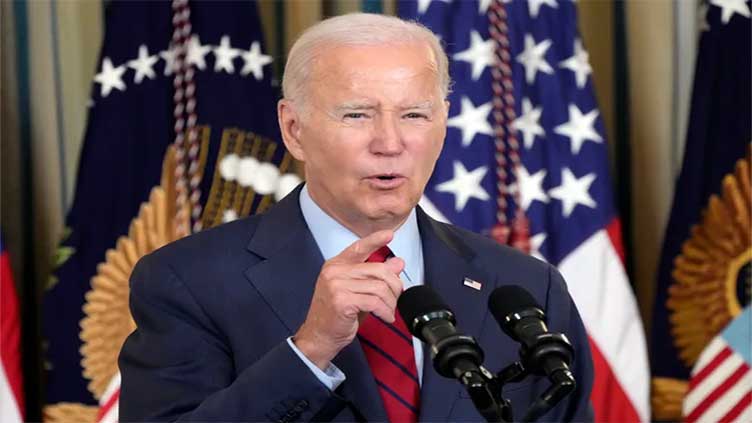Biden is set to speak with Netanyahu in the leaders' first conversation since August

World
Biden is set to speak with Netanyahu in the leaders’ first conversation since August
WASHINGTON (AP) — President Joe Biden is set to speak with Israeli Prime Minister Benjamin Netanyahu on Wednesday as Israel expands its ground incursion into Lebanon and considers how to respond to Iran’s recent ballistic missile attack.
The leaders’ call, previewed by a person familiar with the matter, is coming two days after the anniversary of the Oct. 7, 2023, attack by Hamas on Israel that led to the war in Gaza that has spread into a wider regional conflict. It will be the first conversation between Biden and Netanyahu since Aug. 21.
The person was not authorized to discuss the matter publicly and spoke on condition of anonymity.
Israel has been discussing how to respond to the Iranian missile barrage from Oct. 1, which the United States helped to fend off. Biden last week said he would not support a retaliatory Israeli strike on sites related to Tehran’s nuclear program.
Israel’s other choices range from a largely symbolic strike — similar to how Israel responded after Iran launched missiles and attack drones in April — to hitting oil facilities and other infrastructure.
Since the leaders’ last call seven weeks ago, Israel has carried out a brazen sabotage and assassination campaign against Iran-backed Hezbollah in Lebanon, where the militant group has continued to fire missiles, rockets and drones at Israel.
Israel is now undertaking what it has described as limited ground operations across its northern border with Lebanon to dig out Hezbollah. Airstrikes killed the group’s leader, Hassan Nasrallah, and decimated its leadership.
Last month, thousands of explosives hidden in pagers and walkie-talkies used by Hezbollah detonated, killing dozens of people and maiming thousands, including many civilians. Israel is widely believed to be behind the attack
The U.S. has maintained a stepped-up troop presence in the region, to defend Israel and American interests in the Middle East. Washington has grown increasingly vocal with Israeli officials about the need to be kept in the loop on their decision-making to ensure the protection of U.S. forces.


